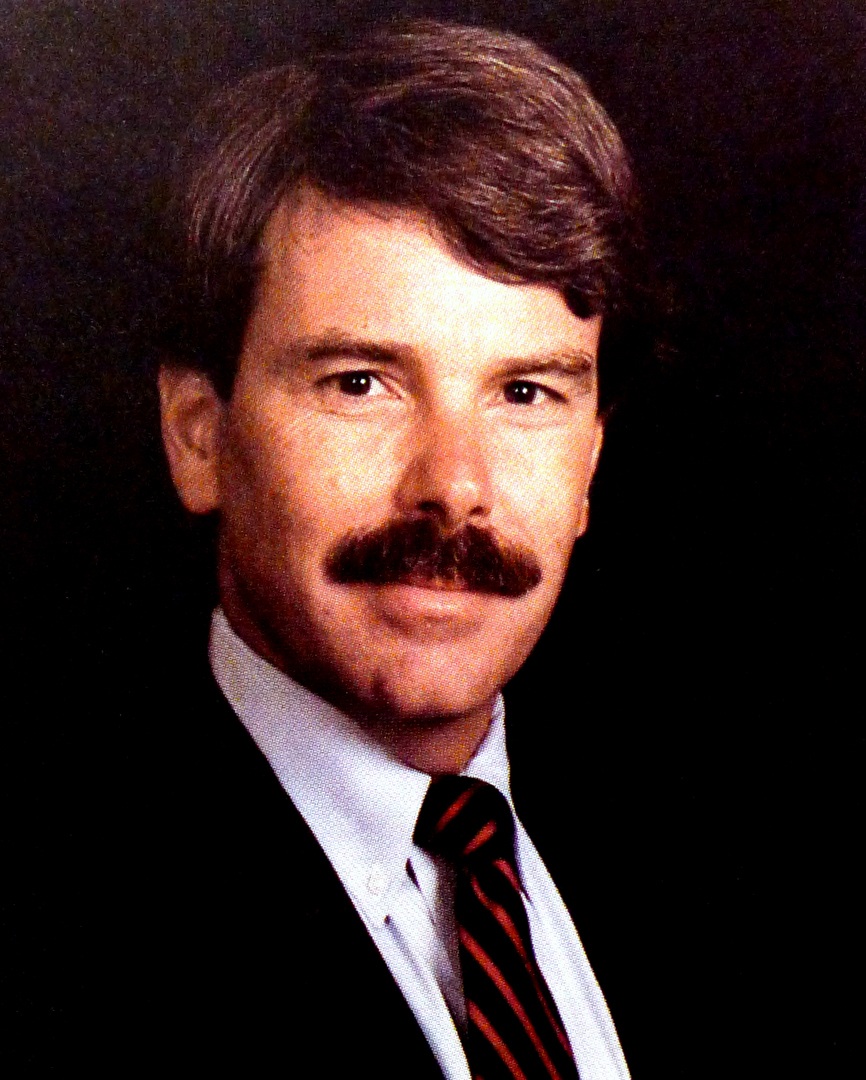SERGEANT TY S. REID
BADGE 527, ID 1794
SDPD 03/10/1967 - 01/02/1970
12/11/1970 - 01/06/1988
12/15/1945 – 01/11/1994
San Diego Union-Tribune, The (CA) - April 13, 1994
Deceased Name: Police mourn a fallen star Ty Reid, ex-POA chief, will be moved from pauper's grave
Ty Reid's confident pose stands out among the photos in the San Diego Police Officers Association yearbook.
He wears a crisp white shirt, a preppy striped tie, his customary thick mustache and a look of cocky determination.
The photo is from 1986. That's the final year Reid was president of one of the most powerful labor unions in the county, the San Diego Police Officers Association (POA). For the rank and file, he delivered: four-day work weeks, large pay increases and improved safety at a time when officers were being killed at an alarming rate.
Then 40 years old, Reid, a longtime rebel with a cause, had charisma, energy, a rapid-fire mind. He was, as a friend recalled, "on top of the mountain . . . a rising star."
Eight years later, only shadows leave their imprint on Ty Sereden Reid's grave, unmarked for a fallen star.
After relinquishing the hard life of police work, Reid apparently had replaced it with a harder life. Three months ago, in the early morning hours of Jan. 11, he died of liver failure, ending a long struggle with alcoholism.
He was 48 when he died virtually penniless in a Lemon Grove convalescent center.
Reid, who once wheeled and dealed with top police and city brass, was laid to rest in a simple pine box at Mount Hope Cemetery in San Diego. There were no mourners. The county's Public Administration Office paid the $690 burial cost.
Many of Reid's longtime friends, who for years were out of the orbit of his world, had no idea what happened to him. Many didn't know that as his own life deteriorated, he still managed to save someone else's, a young boy injured in a car accident.
Police Department headquarters -- usually rumor central -- lost touch with one of its own. For years Reid failed to contact his grown son and two former wives. His parents and only sister died many years ago.
When they recently heard news of his death, Reid's friends were shocked but not surprised. They wonder today if they should have reached out more to their driven, brilliant friend. And why didn't their friend turn to them and try to arrest whatever demons lurked inside?
"Whatever Ty Reid did -- it was 110 percent," said one longtime friend. "When he was a sergeant on the streets, it was 110 percent. When he worked at the union, it was. I just wish he reached out and knew that we cared about him."
On Friday morning, many of his former colleagues will remember Reid during a memorial service at a new, marked grave. The POA is paying for a reinterment to honor its former leader. A motorcycle brigade is expected to form an honor guard.
"We didn't like the way it was. He was buried that way, with no marker or headstone," said Harry O. Eastus, now president of the POA, whose membership has grown to more than 1,900 from the 1,100 who Reid represented.
A legacy of helping cops
By the time Reid resigned from the POA in April 1986, he had served nearly five years as president, leading officers during a period of difficult contract negotiations and at a time when the number of cops killed on the job hit an all-time high.
He was at the forefront of an innovative two-year pact with the city under which officers received 17 percent pay increases, and he worked to upgrade safety and benefits. Another Reid legacy is the department's shift from the traditional five-day workweek to four, 10-hour days.
After leaving his high-powered post with the POA, Reid had trouble adjusting to the streets as a patrol sergeant. That, coupled with health problems and a deteriorating marriage, caused him to quit, according to those who knew him.
Reid turned in his badge in early 1988, after serving 19 years and three months on the force. He was just shy of the 20 years needed for a full pension.
After having left the department and abandoning the idea of a run at a City Council seat, Reid drifted. He worked briefly for the California Department of Transportation, and then dropped out. Sometimes he stopped at POA headquarters. Sometimes he could be seen driving a taxicab. Once he was seen tattered at Kate Sessions Park in Pacific Beach.
Over the last two years, Reid lived alone in a $250-a-month room in a well-kept house on Narragansett Avenue in Ocean Beach. He had worked off and on, first as a manager for a rental equipment store, then driving a cab, according to his landlord, Wayne Andrews.
Even when his mornings began with vodka on the rocks, Reid never forgot the police anthem: to protect and serve. Two years ago he saved a boy who was injured in a car accident on El Cajon Boulevard, friends said.
Moments after the accident, Reid dashed out of the rental store where he worked and gave the boy mouth-to-mouth resuscitation.
"He was someone who cared more about other people than himself," said his only son, Jeremy Reid, 23, who works in the music industry near San Francisco. "He shut himself out. The last I heard from him was a phone call a few years back. He was fairly depressed with the course his life had taken. But he was too proud. It was hard for him to be as successful as he was, and then to be practically on the streets."
Former Mayor Maureen O'Connor, who dealt with Reid for years, said San Diego's rank-and-file police officers owe him a huge debt.
"He hid his own personal demons, but when he was on active duty and involved in the POA, he was the best there was. He got them the most," O'Connor said.
Reid's decision to become a police officer as a young man aggravated his father, James Hallick Reid, a scientist, said Reid's former wife, Jane Henderson. But Reid persisted.
"He was so focused. He wanted to do well," Henderson said. "He insisted on doing the right thing for others."
Reid joined the San Diego Police Department in 1970 after graduating with a criminal justice degree from SDSU.
For the police, Reid worked on the schools task force, was a narcotics officer and became a sergeant overseeing downtown patrols.
"He was a very bright fellow who had his act together and was very professional. He had an excellent rapport with children," said Rulette Armstead, a onetime patrol partner of Reid's who is now a deputy chief.
Lean and fit, Reid escaped some close calls. Once a bullet fired by a suspect buzzed past his ear. On another occasion, Reid exchanged shots with a suspect in the fog, a friend recalled. Reid ran out of bullets, but so did the other guy.
While working within the system, he also rebelled against it. At one point, in the 1970s, Reid tucked his then long hair under a wig to protest the department's dress code.
"I'm going to run for president of the POA and fix things," he told partners. Sure, everybody said that, one of his POA colleagues, Skip DiCerchio said. But Ty Reid did it.
"His primary devotion was to the police more than anything. He was for the cops," said his son, Jeremy.
While leading the POA, he displayed rare political acumen for a street cop: he hired public relations companies and expanded the POA's involvement with community organizations and started its tattle-tale newspaper, the Informant.
The POA thought so highly of Reid that the organization dispatched him to Harvard University, where he studied labor relations.
One City Hall insider, Colin Flaherty, believes that Reid's straight-talking image on a POA campaign video helped Mayor Susan Golding defeat now Rep. Lynn Schenk in their bitter 1984 supervisorial contest. "I believe that commercial made (Golding) supervisor," Flaherty said.
When he resigned from the POA, Reid explained that the job was becoming increasingly complex, requiring total commitment and routine 50- to 60-hour work weeks that he no longer could handle.
"He was a helluva president," said Sgt. Scott Naliboff, a police detective who had worked for Reid. "I think one of the reasons he was so well-liked is that he had a sincerity about him so few people have. I think he really cared about the betterment of the average officer. I would consider him a natural leader."
Trying to cope. Nearly everyone who knew Reid regarded him as a kingmaker who would be king.
A City Council seat was his for the taking if he wanted to run, political insiders say. Reid publicly considered a candidacy but later backed off. He insisted that the 1985 racially charged Sagon Penn shooting case left a negative image on law enforcement that would be difficult to overcome.
But Reid was trying to overcome other things.
"He just got to the point where he couldn't handle the stress, everything became stressful, people were pressuring him to get heavy into politics," said his son, Jeremy. "I think he could have been a prime (council) candidate but obviously the pressure was too much."
In recent years, Reid isolated himself more and more from those who knew him. He had been in poor health, having fought leukemia -- which had been in remission -- without telling most friends, his son said.
Suffering from complications of a severe liver ailment, Reid checked himself into UCSD Medical Center last Dec. 15. He was transferred to the Lemon Grove Convalescent Center on Jan. 5 and died there six days later.
His most frequent visitor was a 71-year-old aunt, Marcella Tiemer, of Woodland Hills. She described Reid as "selfless: too much so that he neglected himself."
His longtime mentor and friend, Jack Pearson, Reid's predecessor as head of the POA, shared many moments with Reid.
"He had a good life, he enjoyed himself, he was fun and extremely witty," Pearson said. "He had the desire to make things better and he acted. That's a lot better than a lot of people."
THE THIN BLUE LINE
Basic information is provided as a courtesy and is obtained from a variety of sources including public data, museum files and or other mediums. While the San Diego Police Historical Association strives for accuracy, there can be issues beyond our control which renders us unable to attest to the veracity of what is presented. More specific information may be available if research is conducted. Research is done at a cost of $50 per hour with no assurances of the outcome. For additional info please contact us.



